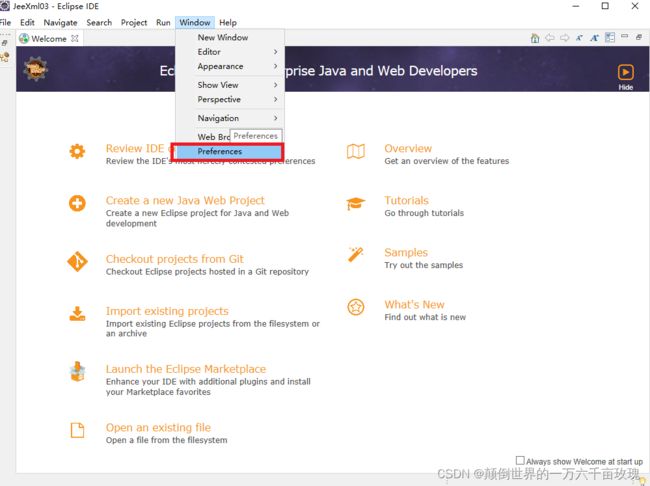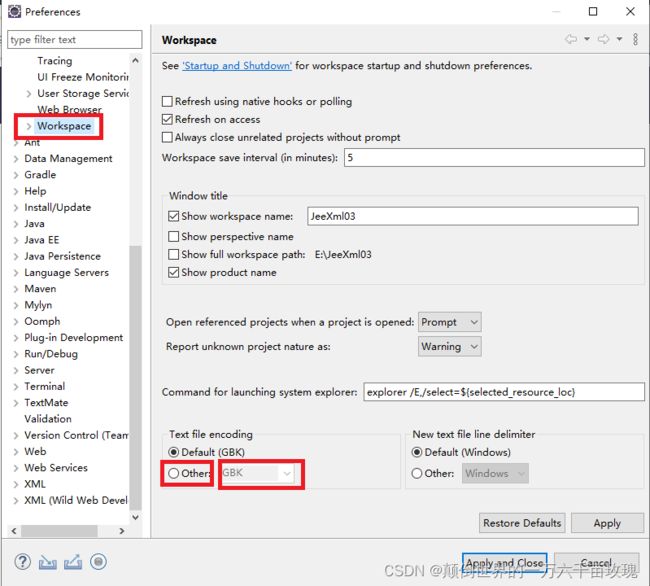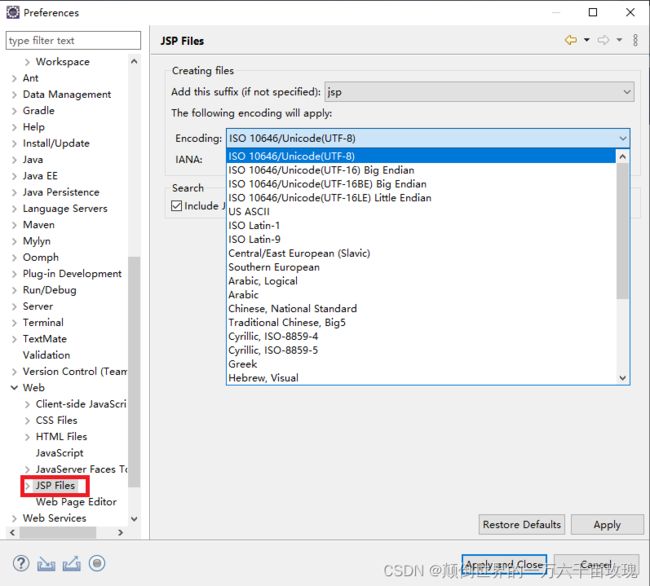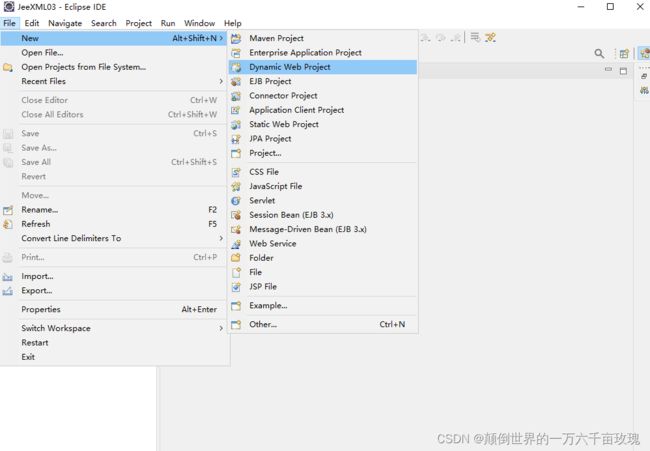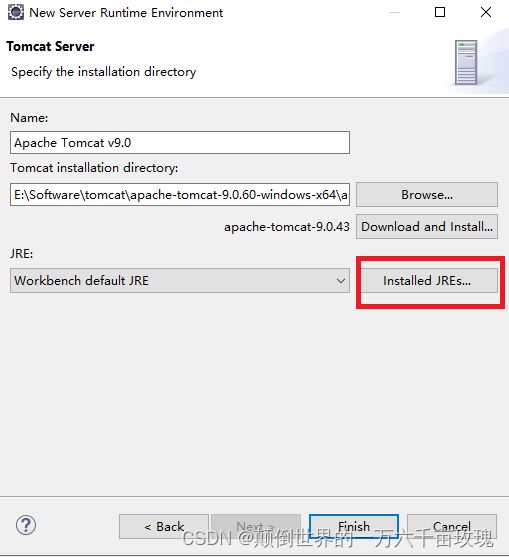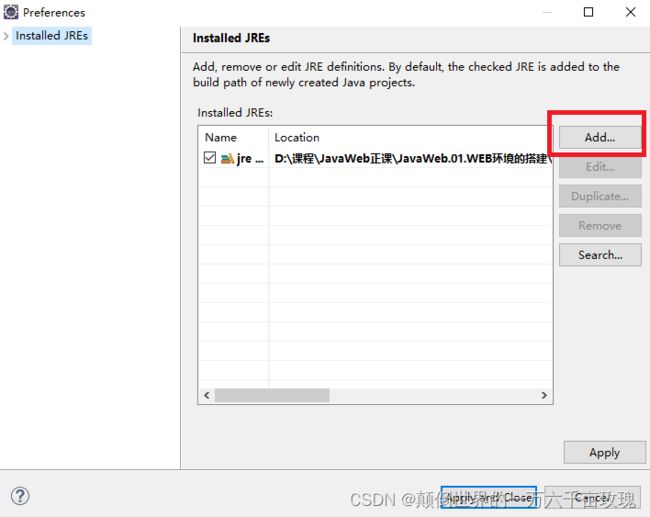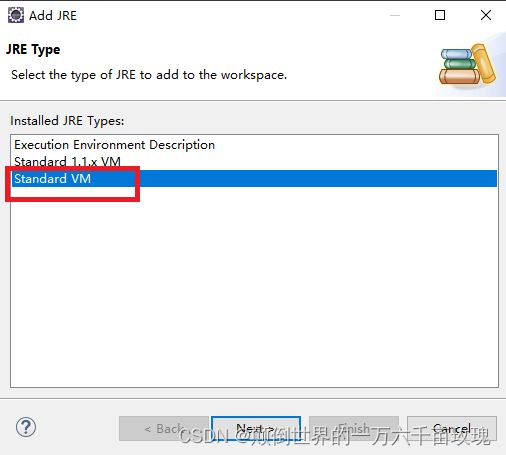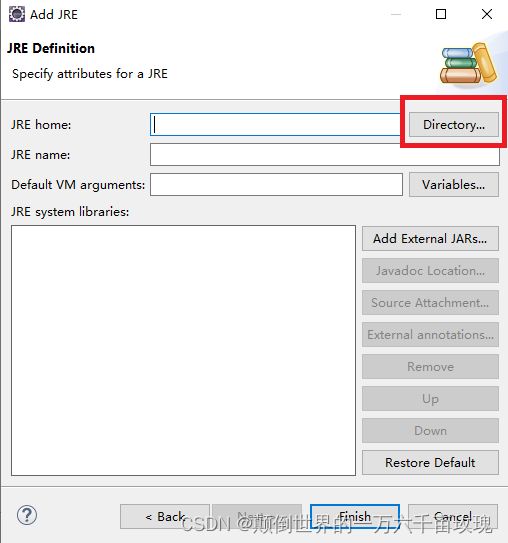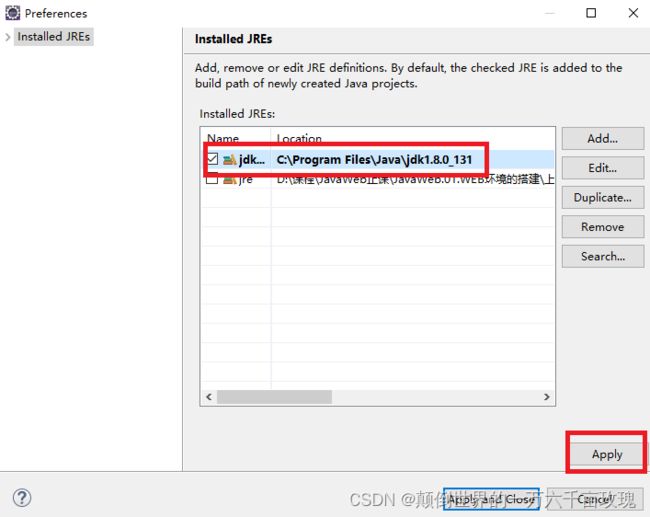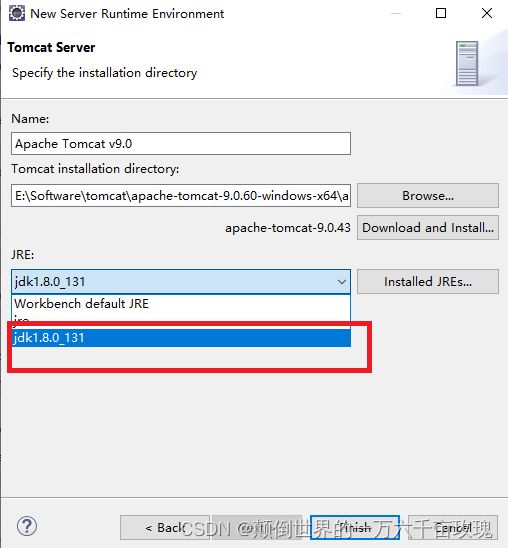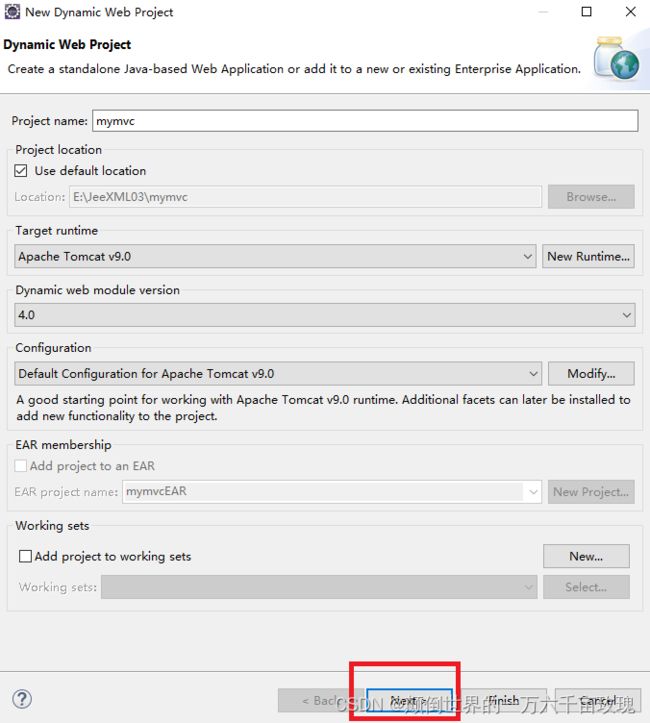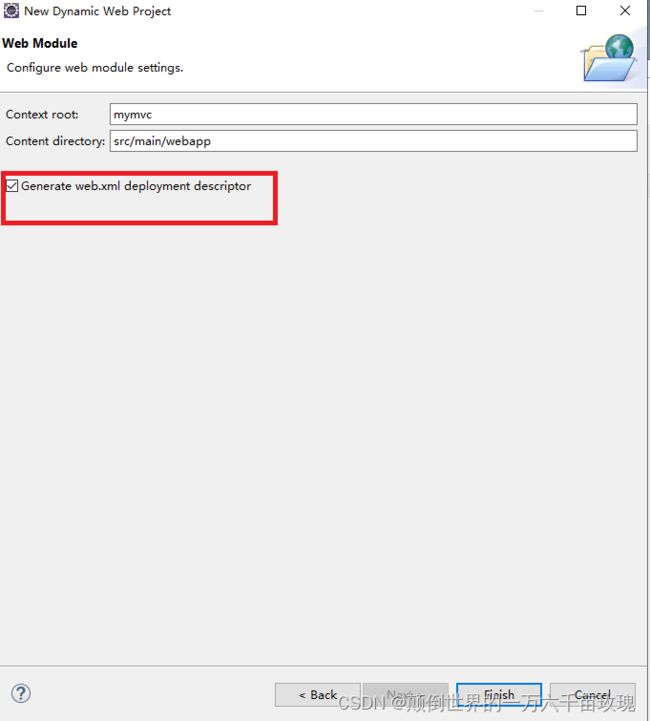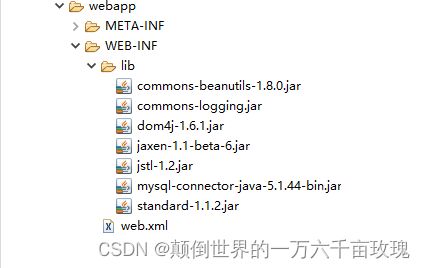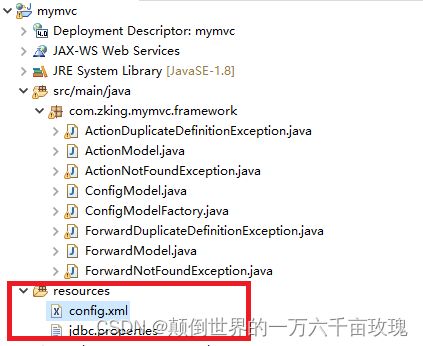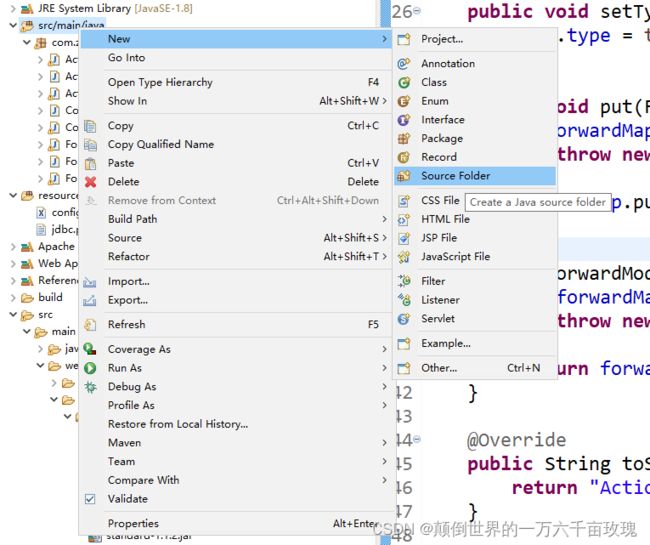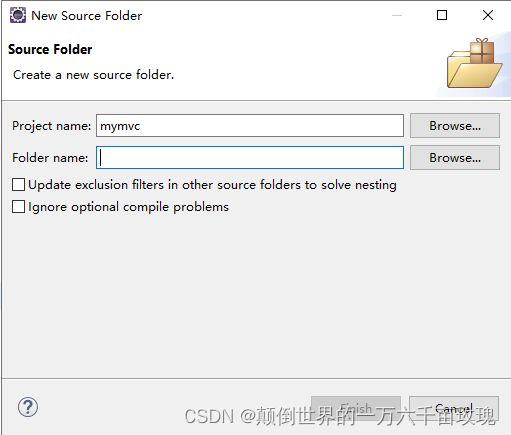XML建模>︿<and自定义异常(~ ̄▽ ̄)~
目录
XML建模的步骤
1.环境搭建
2.导入相关的jar包
3.建立相关的包和配置文件
4.根据配置文件建立相关的模型类
5、自定义异常
6.模型类代码编写
7、工厂类编写
XML建模的步骤
1.环境搭建
为了举例我新开了一个工作区间,所以需要修改编码
3.新建一个项目
4.配置tomcat,具体的配置方法请看JavaWeb.WEB环境的搭建
选好tomcat后,先别Finish,需要点击红框里的按钮
5.进入下一个界面,点击Add
6.然后又接着进入下一个界面,选择Standard VM
7.选择jdk版本,C:\Program Files\Java\jdk1.8.0_131(一般是默认地址,我这里的版本是jdk1.8.0_131)
选好后点击finish,返回上一个界面
8.选好jdk版本后,这个界面上就会显示出来,勾选好后点击Apply然后点击Apply and Close
返回上一个界面
9.选择你配置好的jdk,然后点击Finish
10.点击两次next
11.勾选完成后就配置好了
2.导入相关的jar包
3.建立相关的包和配置文件
建包就不需要我多说了,但是我要着重讲的是建一个源码包
图片中的就是我建的源码包和配置文件。
新建源码包的方法,按图片上的过程来( •̀ ω •́ )✧
第一个name是你的项目名
第二个是你的源码包名,命名规则:小写
我的配置文件(config.xml)代码( •̀ ω •́ )
]>
4.根据配置文件建立相关的模型类
类名规范:首字母大写的驼峰命名法
模型类命名:
- ConfigModel:Config节点模型
- ActionModel:Action节点模型
- ForwardModel:Farword节点模型
5、自定义异常
1.ActionDuplicateDefinitionException:Action元素中存在重复定义异常
package com.zking.mymvc.framework;
public class ActionDuplicateDefinitionException extends RuntimeException{
public ActionDuplicateDefinitionException() {
super();
}
public ActionDuplicateDefinitionException(String msg) {
super(msg);
}
public ActionDuplicateDefinitionException(String msg,Throwable c) {
super(msg , c);
}
}2.ActionNotFoundException:未找到
package com.zking.mymvc.framework;
public class ActionNotFoundException extends RuntimeException {
public ActionNotFoundException() {
super();
}
public ActionNotFoundException(String msg) {
super(msg);
}
public ActionNotFoundException(String msg,Throwable c) {
super(msg , c);
}
}
3.ForwardDuplicateDefinitionException:Forward元素中存在重复定义异常
package com.zking.mymvc.framework;
public class ForwardDuplicateDefinitionException extends RuntimeException{
public ForwardDuplicateDefinitionException() {
super();
}
public ForwardDuplicateDefinitionException(String msg) {
super(msg);
}
public ForwardDuplicateDefinitionException(String msg,Throwable c) {
super(msg , c);
}
}
4.ForwardNotFoundException:未找到
package com.zking.mymvc.framework;
public class ForwardNotFoundException extends RuntimeException {
public ForwardNotFoundException() {
super();
}
public ForwardNotFoundException(String msg) {
super(msg);
}
public ForwardNotFoundException(String msg,Throwable c) {
super(msg , c);
}
}
6.模型类代码编写
根节点ConfigModel类
package com.zking.mymvc.framework;
import java.util.HashMap;
import java.util.Map;
public class ConfigModel {
private Map actionMap= new HashMap<>();
public void put(ActionModel action) {
if(actionMap.containsKey((action.getPath()))) {
throw new ActionDuplicateDefinitionException("Action"+ action.getPath()+" Duplicate Definition(重复定义)");
}
actionMap.put(action.getPath(), action);
}
public ActionModel find(String path) {
if(!actionMap.containsKey(path)){
throw new ActionNotFoundException("Action path ="+ path +" not found(没有找到)");
}
return actionMap.get(path);
}
}
ActionModel类
package com.zking.mymvc.framework;
import java.util.HashMap;
import java.util.Map;
public class ActionModel {
private String path;
private String type;
private Map forwardMap = new HashMap<>();
public String getPath() {
return path;
}
public void setPath(String path) {
this.path = path;
}
public String getType() {
return type;
}
public void setType(String type) {
this.type = type;
}
public void put(ForwardModel forward) {
if(forwardMap.containsKey(forward.getName())) {
throw new ForwardDuplicateDefinitionException("forward name ="+forward.getName()+" Duplicate Definition(重复定义)");
}
forwardMap.put(forward.getName(), forward);
}
public ForwardModel find(String name) {
if(!forwardMap.containsKey(name)) {
throw new ForwardNotFoundException("forward name ="+ name +" not found(没有找到)");
}
return forwardMap.get(name);
}
@Override
public String toString() {
return "ActionModel [path=" + path + ", type=" + type + ", forwardMap=" + forwardMap + "]";
}
}
ForwardModel类
package com.zking.mymvc.framework;
public class ForwardModel {
private String name;
private String path;
private boolean redirect;
public String getName() {
return name;
}
public void setName(String name) {
this.name = name;
}
public String getPath() {
return path;
}
public void setPath(String path) {
this.path = path;
}
public boolean isRedirect() {
return redirect;
}
public void setRedirect(boolean redirect) {
this.redirect = redirect;
}
public void setRedirect(String redirect) {
this.redirect = Boolean.valueOf(redirect);
}
@Override
public String toString() {
return "ForwardModel [name=" + name + ", path=" + path + ", redirect=" + redirect + "]";
}
}
7、工厂类编写
编写工厂类ConfigModelFactory的目的是在这个类中使用单例模式,并且只对XML文件中的内容读取一次,读取后放入上一步编写好了的模型对象中
package com.zking.mymvc.framework;
import java.io.InputStream;
import java.util.List;
import javax.sql.rowset.spi.XmlReader;
import org.dom4j.Document;
import org.dom4j.Element;
import org.dom4j.io.SAXReader;
@SuppressWarnings("unchecked")
public final class ConfigModelFactory {
private ConfigModelFactory() {
}
private static ConfigModel config = new ConfigModel();
//读取config.xml中的数据。填充到模型中
static {
try {
InputStream in = XmlReader.class.getResourceAsStream("/config.xml");
SAXReader reader = new SAXReader();
Document doc = reader.read(in);
Element rootElement = doc.getRootElement();
List actions = rootElement.selectNodes("action");
for(Element e: actions) {
String path = e.attributeValue("path");
String type= e.attributeValue("type");
//放入模型
ActionModel action = new ActionModel();
action.setPath(path);
action.setType(type);
//通过action元素获得actions下面的节点forward
List forwards = e.selectNodes("forward");
for(Element f : forwards) {
String name = f.attributeValue("name");
String fPath = f.attributeValue("path");
String redirect = f.attributeValue("redirect");
//放入模型
ForwardModel forward = new ForwardModel();
forward.setName(name);
forward.setPath(path);
forward.setRedirect(redirect);
//将forward放入action
action.put(forward);
}
//循环完成后将action放入根节点
config.put(action);
}
} catch (Exception e) {
e.printStackTrace();
}
}
public static ConfigModel getConfig() {
return config;
}
public static void main(String[] args) {
ConfigModel config = ConfigModelFactory.getConfig();
ActionModel action = config.find("/studentAction");
System.out.println(action);
ForwardModel forward = action.find("students");
System.out.println(forward);
}
}
好了这篇文章就到这里结束了,拜拜!
